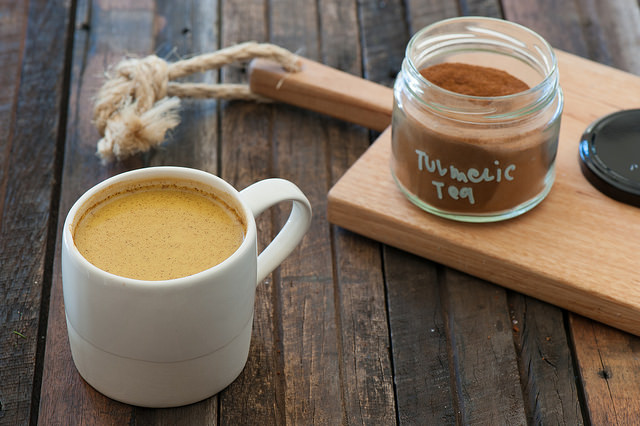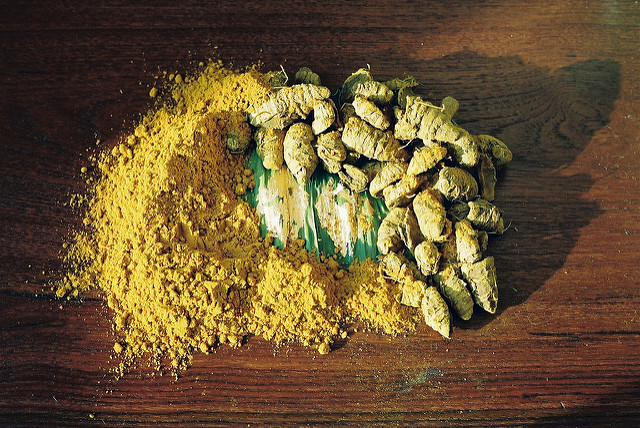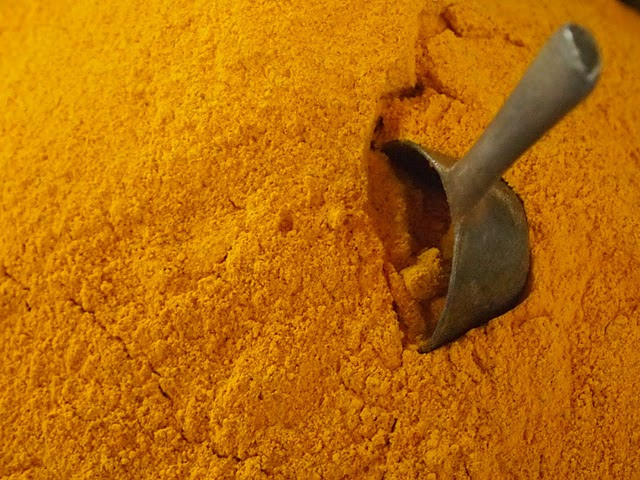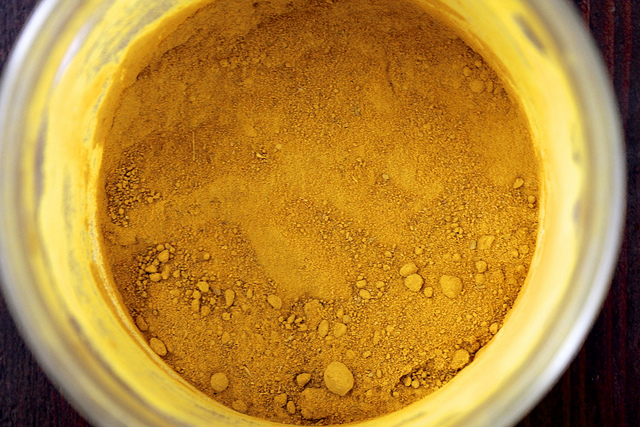When it comes to superfoods, you’ve got to understand that most haven’t been extensively studied. We can only infer a causative link between the food and health benefits.
This isn’t the case with turmeric though.
Turmeric is one of the most-studied superfoods. It is one of the most-studied superfoods. In the past 25 years, there have been over 6,000 scientific studies published on the health benefits of turmeric. Many of these turmeric studies were performed in the past few years and, at this very moment, scientists are probing further into the health benefits of turmeric.
Here are just some of the main medicinal benefits of turmeric that you should be aware of so you can boost your health and live a more fulfilled life.
1. Turmeric Reduces Inflammation
Inflammation occurs when chemicals from white blood cells are released in order to protect damaged tissues or protect the body from harmful invaders.
In the short term, inflammation is a necessary reaction to protect our bodies. However, when our bodies are subject to chronic inflammation – such as from eating bad diets, stress, inadequate sleep, or obesity – the results can be disastrous.
Inflammation is now linked to a long list of ailments:
- Arthritis
- Asthma
- Autism
- Alzheimer’s disease
- Parkinson’s disease
- Heart disease
- Cancer
- Atherosclerosis
- Crohn’s disease
- Psoriasis
- And many more…
Turmeric is one of the most potent natural anti-inflammatories out there. It works by suppressing cells that signal for inflammation. In fact, a study found that turmeric is even more power of an anti-inflammatory than pharmaceutical drugs like aspirin and NSAIDs!
It is so effective that even the Arthritis Association sites studies and recommends taking turmeric powder in dosages of 0.5 to 1 gram up to 3 grams per day.

2. Turmeric for Treating Depression
As mentioned above, we now know that depression is linked to inflammation. Because turmeric helps reduce inflammation, it is able to fight depression in this way. However, the health benefits of turmeric don’t stop there.
Studies such as this one, this one, and this one have shown that turmeric supports neurotransmitter systems. Turmeric or dosages of curcumin were found to increase levels of serotonin, noradrenaline, and dopamine while inhibiting monoamine oxidase activity.
Basically, it is doing what most antidepressant drugs try to do but without the harmful side effects!
3. Turmeric Helps Cardiovascular Health
A study published in The International Journal of Biochemistry and Cell Biology calls turmeric an “attractive” treatment option for cardiovascular diseases because it is not only effective and safe, but cheap (certainly cheaper than the billions being spent on heart health today!).
There are 4 main ways that turmeric benefits heart health.
Fighting Inflammation
It turns out that inflammation might have a big role in heart disease. As the American Heart Association writes, heart attacks and strokes occur from the buildup of plaque in arteries. The body perceives the plaque as foreign and sets off an inflammation response. However, some of the plaque can escape from the inflamed tissue and get in contact with blood. This then results in a clot. As an anti-inflammatory, turmeric can help prevent this response.
Reducing Plaque
Turmeric can also help in preventing plaque buildup in the first place. Not only that, but turmeric could actually help reduce plaque that has already formed. (Source)
B6
Turmeric is rich in vitamin B6, which is important in preventing homocysteine production. Homocysteine is dangerous because it damages cell walls – including those in your arteries. When arterial wall get weak, high blood pressure can be very dangerous.
Reducing Cholesterol Levels
As reported at University Health News Daily, studies have revealed that turmeric prevents cholesterol production in the liver. Further, studies like this one have shown that turmeric reduces LDL cholesterol (the bad kind) and increases HDL cholesterol (the good kind).
As if this weren’t good enough, turmeric decreases lipid peroxides in the blood. In layman’s terms, this means the fats don’t become oxidized and damage arteries.

4. Turmeric Treats Irritable Bowel Syndrome
IBS is a disorder which affects 14% of the US population. For people with IBS, life can be very frustrating. They may find it hard to go out of the house because of chronic diarrhea or embarrassing flatulence. To make matters worse, doctors still don’t know for sure what causes IBS (though we now know that it is linked to gut dsybiosis).
Impressively, turmeric can treat IBS when nothing else seems to work. One study found that it only took 1 or 2 tablets of turmeric extract daily for 8 weeks to reduce the prevalence of IBS as well as symptoms of pain and discomfort. Another study
This study credited the IBS-reducing benefits of turmeric to its anti-inflammation properties. However, the benefits of turmeric might go beyond this for IBS. Its antibacterial properties could help fix gut dysbiosis and thus cure IBS.
In these same ways, turmeric has been shown effective for treating other GI disorders including Crohn’s disease.
5. Turmeric for Iron
Iron is incredibly important for your health because it provides hemoglobin, the protein in red blood cells. Oxygen binds to it so it can be carried throughout your body tissues.
Unfortunately, iron deficiency is incredibly common. The World Health Organization says that it is the most common and widespread nutritional disorder in the world. Even in developed countries like the USA, prevalence is still very high.
Without enough iron, you will feel tired and immunity will suffer (sickness, anyone?). An easy solution for getting more iron in your diet is to consume turmeric. A single tablespoon of turmeric powder (7g) contains 16% of your DV for iron. Read more about the nutrition of turmeric here.

6. Turmeric for Diabetes
To prevent diabetes, you need to keep your blood sugar levels stable so insulin resistance doesn’t occur. Once you have diabetes, then you need to reverse the insulin resistance so your body responds to insulin again.
Turmeric helps on both these fronts.
A review of studies published in the International Journal of Endocrinology and Metabolism found that turmeric helps prevent and even reverse diabetes by:
- Reducing glucose production in the liver
- Reducing glycogen production in the liver
- Reducing autoimmune activity
- Increasing glucose uptake through GLUT2, GLUT3, and GLUT4 gene expressions
- Enhancing AMP kinase
- Improving pancreas cell function
- Improving beta cell function
- Improving utilization of fatty acids
- Increasing insulin receptor B and reducing insulin resistance
Turmeric is so effective for diabetes that one study even found that it was 400 times more effective than the diabetes drug Metformin.

7. Turmeric As a Natural Antibiotic and Infection-Fighter
When pharmaceutic antibiotics were first synthesized in the early 1900s, we thought that the end of all disease was near. What we didn’t realize then is that our bodies actually need bacteria – and the bacteria in our guts are important for health.
Indiscriminately killing bacteria with an antibiotic might not be such a good idea after all!
In comes turmeric to the rescue. Unlike pharmaceutical antibiotics, natural antibiotics like turmeric work on many levels to kill harmful bacteria without causing gut dsybiosis. The antioxidants in turmeric also help boost the immune system.
A huge variety of studies have shown its efficacy in treating a wide range of bacterial, viral, and fungal infections including: malaria, h. pylori, and influenza among many more.
Why would you want to take turmeric when there are pharmaceutical antibiotics available?
8. Turmeric for Ulcers, Heartburn, and GERD
In case you haven’t heard, that burning pain is NOT caused by stress. We now know that the real culprit is a bacterial infection called h. pylori.
Turmeric can help by acting as a natural antibiotic to kill h. pylori but without killing the good bacteria in the process. Further, turmeric’s anti-inflammatory properties can help heal damaged digestive tracts.
But you heard that turmeric is bad for GERD because it increases gastric acid production? Well, this is actually a benefit too. One of the causes of GERD is not enough acid. Without enough acid, food isn’t digested properly, bacteria eat at undigested food, gas is produced as a byproduct, and severe inflammation pushes stomach acid into the esophagus. By increasing gastric acid production, turmeric can help ensure food gets digested properly.

9. Turmeric for Cancer
Turmeric has been called a “universal cancer treatment” because of how effective it has been shown in clinical studies to prevent and reverse cancer.
Doctor Mercola notes that, unlike other natural remedies which seem to be effective only for specific types of cancer, turmeric works against all types of cancers – and studies show that it is the most effective of any nutrient.
Once in the body, turmeric works on more than 100 molecular pathways to target cancer cells and inhibit their activity. Many studies even show that turmeric stops cancer cells from dividing. Amazingly, turmeric does this while keeping health cells alive.
10. Turmeric for Healthy Skin
Turmeric has proven beneficial for numerous skin disorders, including:
- Eczema
- Psoriasis
- Acne
- Dermatoses
- Skin infections
- Wound healing
The skin-healing powers of turmeric lay in the fact that it reduces inflammation and autoimmune responses. When applied to the skin, it can also act directly on the site to kill fungi or bacteria and speed up wound healing.
For atopic use, turmeric is usually mixed with an oil (such as coconut oil) and applied directly to the skin. Do be warned that the turmeric paste will dye the skin yellow! So, maybe it’s better to take turmeric internally instead.

11. Turmeric for Detoxifying the Body
The body has many ways of detoxifying itself from the onslaught of chemicals and toxins that we encounter every day, but the liver is arguably most important for detox.
As blood flows through the liver, it acts as a filter to catch alcohol, drugs, chemicals, and toxins. It transforms them into substances like ammonia so they can be excreted from the body. The liver also removes bacteria, fungi, and viruses from the blood, so it is vital for preventing infections.
Turmeric supports detox because it promotes bile production in the liver. Bile is necessary for the liver to eliminate toxins and also for rejuvenating liver cells. Studies have found that turmeric can even heal damaged liver cells.
Want all of these turmeric benefits?
The easiest way is to get started with turmeric is to add turmeric powder to your food — like with this simple turmeric rice recipe or these turmeric tea recipes.
A good brand of turmeric is Starwest Botanicals. Their turmeric powder is organic, high-quality, manufactured in the USA, and guaranteed. Plus, they sell it in 1 pound bulk bags so it is much more affordable than buying turmeric capsules or small seasoning jars. You can buy it here.
Want to learn even more about turmeric? You can download an awesome turmeric eBook here called The Secrets of Turmeric. (Just click to the end of the slideshow). The eBook comes with a recipe book so you will never be at a loss of recipes to make with turmeric.
***Order the Secrets of Turmeric here***
Additional Resources for this article:
http://www.whfoods.com/genpage.php?tname=foodspice&dbid=78#historyuse
http://dmelibrary.com/history-of-turmeric/
http://www.pbs.org/food/the-history-kitchen/turmeric-history/
http://vailmedicalcenter.com/tumeric-benefits/
http://www.health.com/health/gallery/0,,20898778,00.html/view-all
https://www.mc.vanderbilt.edu/vanderbiltmedicine/the-good-the-bad-and-the-ugly-of-inflammation/
http://www.positivehealth.com/article/herbal-medicine/the-herbal-approach-to-dysbiosis
https://www.ncbi.nlm.nih.gov/pmc/articles/PMC3281215/
https://www.hsph.harvard.edu/nutritionsource/diabetes-prevention/preventing-diabetes-full-story/#T2D_can_be_prevented
http://www.healthline.com/health/diabetes/turmeric-and-diabetes#Research3
http://www.greenmedinfo.com/blog/turmeric-extract-may-prevent-even-reverse-diabetes-type-1-and-2
http://care.diabetesjournals.org/content/35/11/2121.full
http://www.sciencedirect.com/science/article/pii/S0308814609010553
http://onlinelibrary.wiley.com/doi/10.1111/j.1523-5378.2007.00497.x/full
https://academic.oup.com/femspd/article/63/3/355/439248/Protective-mechanism-of-curcumin-against-Vibrio
http://www.sciencedirect.com/science/article/pii/S0006291X04026130
http://www.jbc.org/content/280/10/9409.short
http://onlinelibrary.wiley.com/doi/10.1111/j.1523-5378.2007.00497.x/full
https://digestivehealthinstitute.org/2014/07/10/h-pylori-low-stomach-acid-gerd/
http://www.healthline.com/health/digestive-health/turmeric-acid-reflux
http://www.cancerresearchuk.org/about-cancer/cancers-in-general/cancer-questions/can-turmeric-prevent-bowel-cancer
https://thetruthaboutcancer.com/benefits-turmeric-cancer-treatment/
https://nccih.nih.gov/health/turmeric/ataglance.htm
https://www.ncbi.nlm.nih.gov/pubmed/24085048
https://www.hindawi.com/journals/isrn/2013/250597/
http://www.greenmedinfo.com/blog/why-turmeric-may-be-diseased-livers-best-friend-friend-a
https://www.ncbi.nlm.nih.gov/pubmed/20821233
http://botanical.com/site/by_you/article_tumeric/turmeric.html
https://www.liverdoctor.com/liver/the-liver-and-detoxification/
Image credits:
“Turmeric Body Masque | The Dabblist” (CC BY 2.0) by thedabblist
“turmeric—coimbatore-market_2278369298_” (CC BY-ND 2.0) by Vilb1
“Turmeric” (CC BY-NC-SA 2.0) by Hella Delicious
“Iffat’s Gaye holud” (CC BY-NC-ND 2.0) by hasiB wahaB
“Tumeric” (CC BY-ND 2.0) by Cherrie 美桜
“Turmeric” (CC BY-NC-ND 2.0) by firesika

